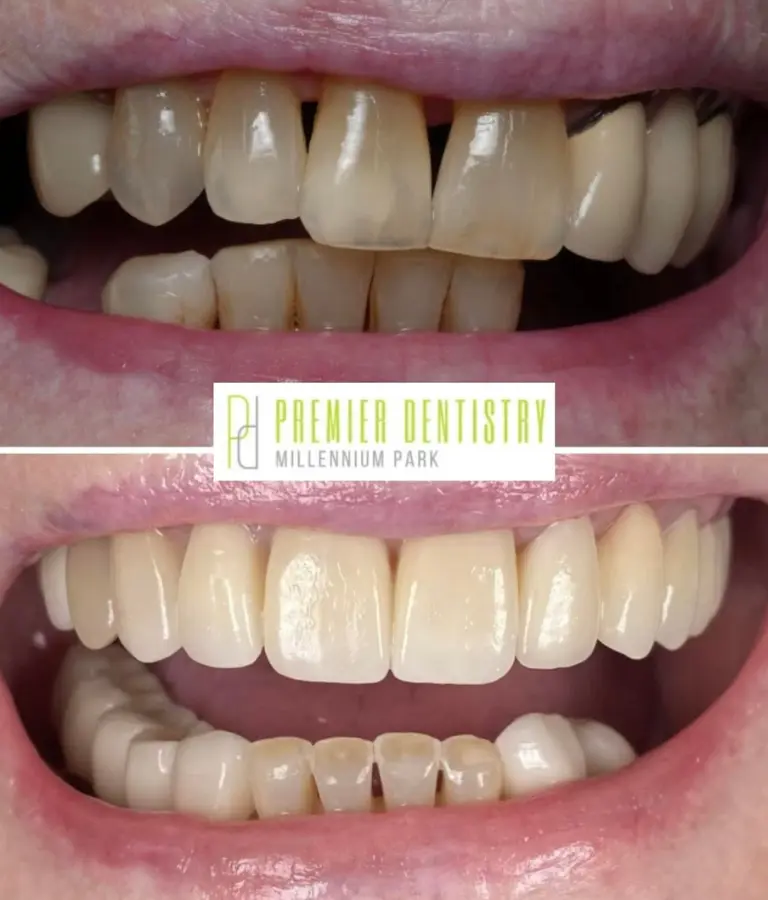Do you have tooth damage? Are there minor imperfections impacting the beauty of your natural smile?
Dr. Nechama Brand helps patients in the Chicago, IL area improve the aesthetics of their smiles with dental bonding.
Dental bonding is an economical and effective way for patients to fix chipped and cracked teeth, slightly crooked teeth, tooth misalignment, discolored teeth, and gaps between teeth. This cosmetic dentistry option also benefits patients who do not want a permanent cosmetic restoration.

What is Dental Bonding?
The resin material that is used in tooth bonding treatment is pliable before it is hardened. Dr. Brand can easily manipulate the material as needed to change the shape and size of your teeth. In addition, the composite resin is color-matched to natural teeth, so discolored teeth can appear brighter.
Treatment for Dental Bonding in Chicago
Before treatment, Dr. Brand will assess your teeth and gums to determine if tooth bonding is the right cosmetic option for you. The treatment process begins when we will remove a small portion of the tooth structure to ensure that the dental bonding material adheres to the treated area.
Then, they will color-match the resin for the most natural-looking result. After sculpting the resin onto the desired tooth or teeth, it is shaped and molded until it is comfortable for the patient. A special UV light hardens and sets the resin. To complete treatment, your dentist will polish the resin for a high shine.
After treatment, patients should avoid teeth-staining foods and beverages like coffee, red wine, tea, and soda for at least 48 hours. Patients can brush and floss their teeth normally after the procedure, but you should avoid chewing on hard foods following treatment.
Some patients report temporary tooth sensitivity after cosmetic tooth bonding treatment. However, this sensitivity only lasts for a couple of hours. Be aware that patients with underlying dental issues will feel more sensitive than those without these problems.
Dental Veneers vs. Tooth Bonding
Many patients are curious about which treatment is better, porcelain veneers or dental bonding. The answer depends on what you are trying to accomplish. Both treatment options have different pros and cons.
Porcelain veneers are used when a patient wants a complete smile makeover and a permanent solution. However, they cost significantly more than bonding. Also, dental insurance will not cover any portion of the treatment. Dental bonding, on the other hand, is quite affordable. However, the results will only last up to 10 years if the teeth are well taken care of. Bonding is a great solution for a person looking for a short-term solution who is not ready to commit to a more permanent solution.
Patient Review
Dental Bonding FAQs
Dental bonding is a versatile and popular cosmetic procedure. It can enhance your smile by correcting minor dental imperfections. Continue reading to learn more as we address frequently asked questions about the dental bonding process, its benefits, what to expect during the treatment, and more. Contact our office during regular business hours if you have additional questions or concerns.
Can teeth bonding fix crooked teeth?
Yes! Dental bonding is a versatile treatment that your dentist can use in many ways. Dr. Brand can apply the composite resin to the front of the crooked tooth and reshape it to make your tooth appear straight.
How long does bonding last on teeth?
Dental bonding can last up to 10 years depending on where it is applied and how well you care for treated teeth. Additionally, personal habits play a huge role in how long your treatment will last. If you had your front teeth treated, then you may be able to extend the life of the results by not biting directly into hard or rough food. Bad habits such as chewing on your fingernails or pen caps can make the material break.
How much does dental bonding cost?
The cost of your treatment depends on how many teeth are being treated and the condition of each tooth. Also, whether or not your dental insurance offers coverage will determine your out-of-pocket cost. You should expect to pay up to $600 per tooth without dental insurance. We suggest checking your policy to see if or how much coverage is offered.
Can I get tooth bonding to close a gap between my teeth?
Dental bonding is an effective treatment for closing a minor gap between teeth. Your dentist will apply composite resin material to the sides of each tooth. This method helps the teeth appear closer together and your smile look more consistent. However, if the gap between your teeth is significant, you may need a dental crown or porcelain veneers to close the gap effectively.

Will I need anesthesia for teeth bonding?
In most cases, patients do not require anesthesia or sedation for dental bonding. This cosmetic process is simple, fast, and non-invasive. However, suppose your dentist determines that bonding is a good treatment for tooth decay. In that case, a local anesthetic may ensure comfort while removing the decayed portions of the tooth.
Will my dental insurance cover teeth bonding?
Since teeth bonding is considered a cosmetic procedure, dental insurance will not cover it. However, there are some cases where the dentist may determine it is an appropriate procedure for restorative purposes. Dental insurance may offer partial coverage in these cases. In either case, we will provide you with an estimated cost of your treatment.
Can tooth bonding replace a missing tooth?
Dental bonding cannot replace a missing tooth. However, it is common to use tooth bonding to prepare teeth for dental restorations such as bridges or crowns. Your dentist may use the bonding material to prepare the teeth before the bridge or crown is placed.
Is dental bonding a permanent solution?
Dental bonding is considered a semi-permanent solution for minor tooth concerns. If you take proper care of your oral health, it will last several years. However, it is not as durable or resistant to stains as other dental restorations. If you are looking for a permanent solution, a dental crown or porcelain veneer would be a better option, depending on the issues you are trying to treat.
Dental bonding is a great temporary solution that is versatile and affordable. You can expect beautiful results however it is more likely to chip, stain, and require replacement.
Is the dental bonding procedure painful?
The dental bonding procedure is typically painless, and in most cases, it will not even require anesthesia. Preparing the tooth for treatment involves minimal tooth alteration. The dentist then applies a resin material to the tooth’s surface, which is hardened with a special light. These steps are essential pain-free.
However, if the bonding is near the nerve or involves decay removal, discomfort might occur. In these cases, your dentist will use a local anesthetic to ensure your comfort.
Schedule a Dental Exam Today
Contact Premier Dentistry if you are interested in learning more about dental bonding in Chicago. You can reach our office by calling 708-729-9498 or request an appointment online with our dental care team in Chicago, Illinois.
